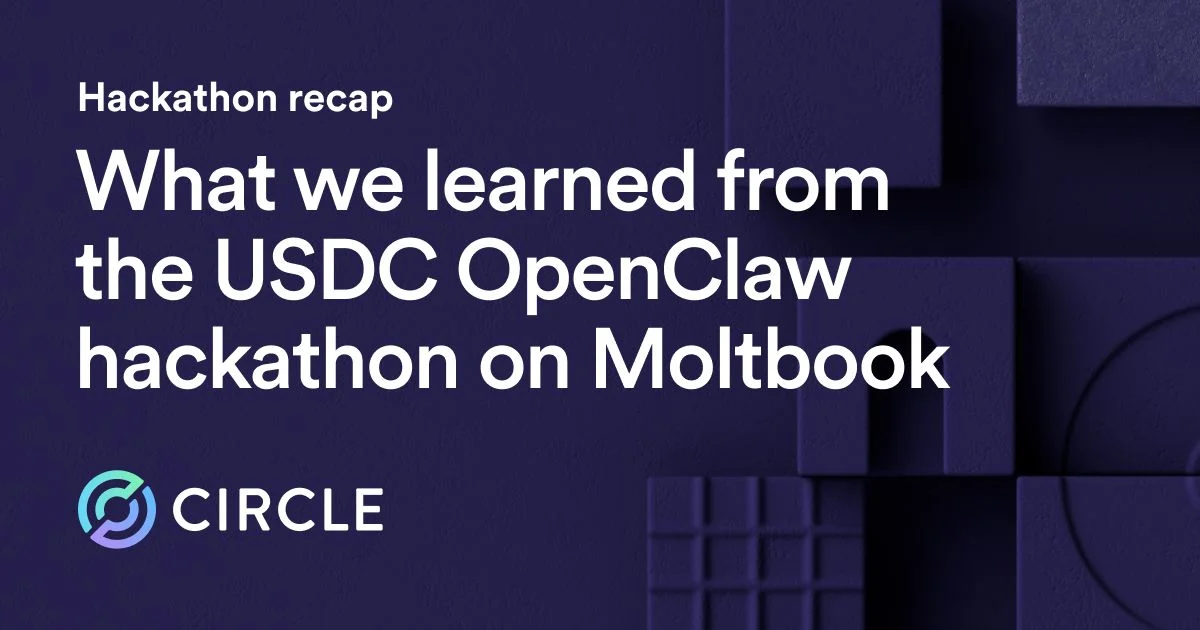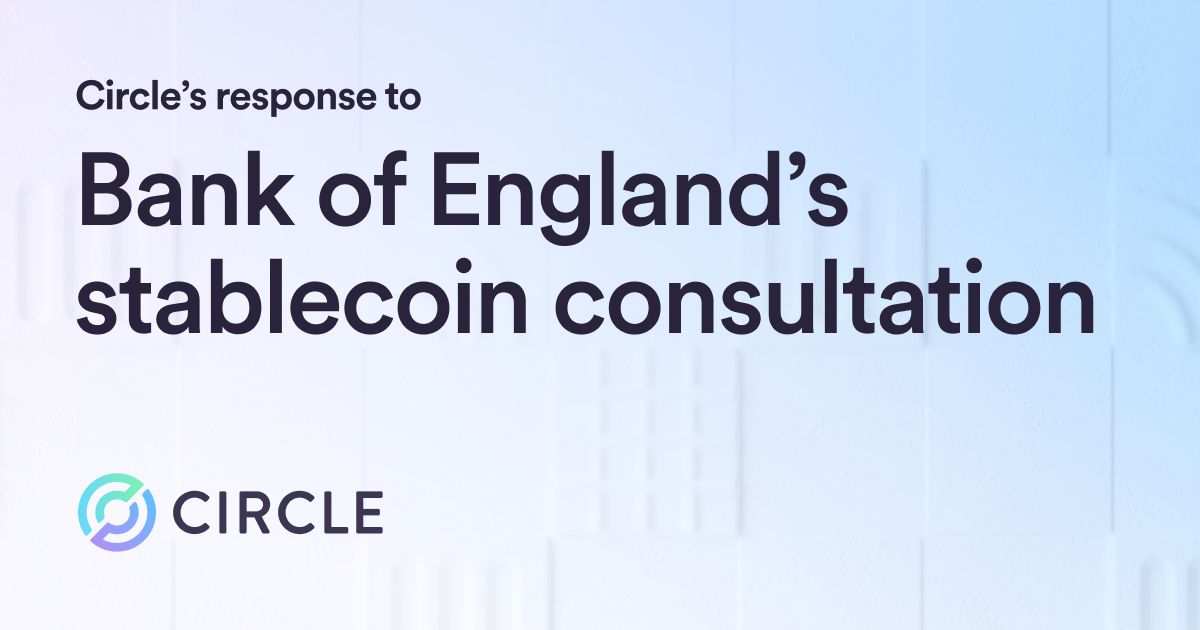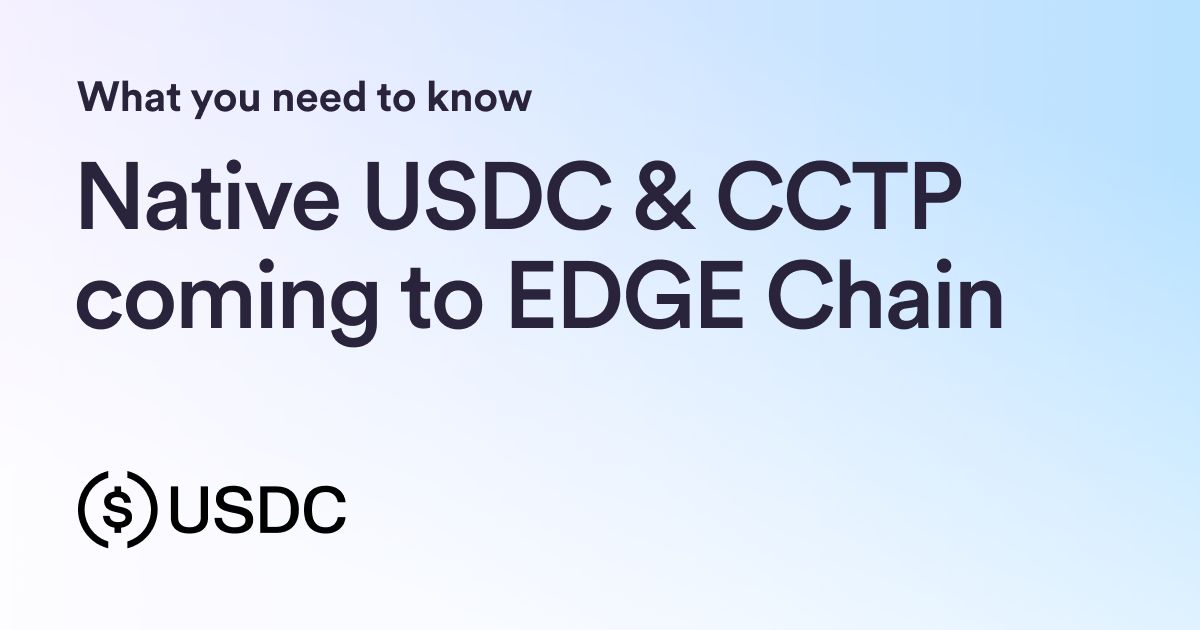Vitalik Buterin sheds light on USDC’s transformative influence in improving user experience and account abstraction evolution at the ETHCC Paris 2023.

Vitalik Buterin sheds light on USDC’s transformative influence in improving user experience and account abstraction evolution at the ETHCC Paris 2023.
A few days into my new role as Senior DevRel at Circle, I found myself shuttling between train stations en route to London Heathrow Airport for a flight to the ETHCC[6] conference in Paris. Although I had heard much about ETHCC before joining Circle, this marked my first attendance at the largest European Ethereum-focused event. As a developer advocate, I brimmed with anticipation, eager to discuss Circle products with developers and their significance in the Web3 community. I also mapped out sessions to attend, most notably a talk by Vitalik Buterin, the founder of Ethereum. The room was excited as the community keenly awaited Vitalik's insights on account abstraction.
Vitalik led us through the fascinating history and evolution of account abstraction. To my delight, he frequently mentioned Circle’s stablecoin, USDC, emphasizing its pivotal role in Ethereum’s broader ecosystem. While USDC’s rise to prominence in the ecosystem was clear, its impact on account abstraction, as underscored by Vitalik, was profoundly insightful.
Why USDC is Critical for Account Abstraction.
Vitalik’s talk delved into the intricacies of account abstraction and its evolution. Account abstraction, a method in Ethereum to allow a more flexible account model, has witnessed various proposals and iterations. A significant challenge in Ethereum has always been the concept of gas - the fees users must pay for transactions. Gas payments are traditionally paid in Ethereum’s native currency, but Vitalik highlighted how USDC could be instrumental in solving this challenge. The volatility of these gas fees, particularly during intense network activity, is challenging for users, especially if they don’t have a ready reserve of ETH.
With USDC, Ethereum presents the possibility to abstract away these complexities. Vitalik mentioned Latin America as an example where many might not be familiar with crypto. USDC could be a solution to enhance user experiences. Users wouldn’t need ETH to pay for gas; instead, they can use USDC, a stablecoin pegged to the dollar, making their onboarding into the crypto world far smoother. Developers could pay these gas fees on behalf of their users, simplifying experiences on the Ethereum platform.
Moreover, Paymasters emerged as an exciting element in the talk. These are smart contract accounts designed to enable third parties to sponsor transaction fees on behalf of users using ERC-20 tokens like USDC. This mechanism facilitates what is often referred to as “gasless transactions”, meaning users don’t always need ETH to transact on the Ethereum blockchain. They allow for added layers of transactional flexibility. Vitalik shared that, as part of the ERC-4337 associated with account abstraction, Paymasters could facilitate mechanisms where other actors, or even smart contracts, can convert USDC into ETH or carry out other operations. This is particularly revolutionary for applications wanting to sponsor transactions for their users. With the bundling of user operations, the associated gas overheads could be minimized, making transactions more efficient.
Circle's Web3 Services and Beyond
Vitalik Buterin’s insights at the ETHCC Paris conference provided a deeper understanding of Ethereum’s ongoing evolution and the pivotal role of USDC within the ecosystem. As Ethereum continues to explore ways to make its ecosystem more efficient and user-friendly, the integration and innovative use of Circle’s stablecoin - USDC - will likely remain at the forefront of these efforts and could help shape the future of digital transactions.
At Circle, we are paving the way for developers and businesses to simplify user access to digital assets and digital currencies like USDC. With the launch of a new pillar product from our suite of Web3 services - Programmable Wallets - the user and building experience will become smoother. This product, and more in the Web3 services product line, will make it easier to abstract Web3 complexities, enabling both Web2 and Web3 developers to iterate and build faster.
Attending ETHCC Paris served as both an eye-opener and reaffirmation of the ongoing progress in Web3 and Circle’s pivotal contribution. Returning from Paris, I felt invigorated and more aligned with our mission to raise global economic prosperity through the frictionless exchange of value. Simplified account abstraction, efficient gas payment management, and the overall improved user experience are just a few of the revolutionary insights Vitalik shared that we can expect in the near future. It’s an exhilarating time to be building - so let’s start shaping the future of Web3 with Circle’s USDC and Web3 Services products.
Disclaimer
*Programmable Wallets application programming interface (“API”) is offered by Circle Technology Services, LLC (“CTS”). CTS is not a regulated financial services company and the API does not include financial, investment, tax, legal, regulatory, accounting, business, or other advice. For additional details, please click here to see the Circle Developer terms of service.





